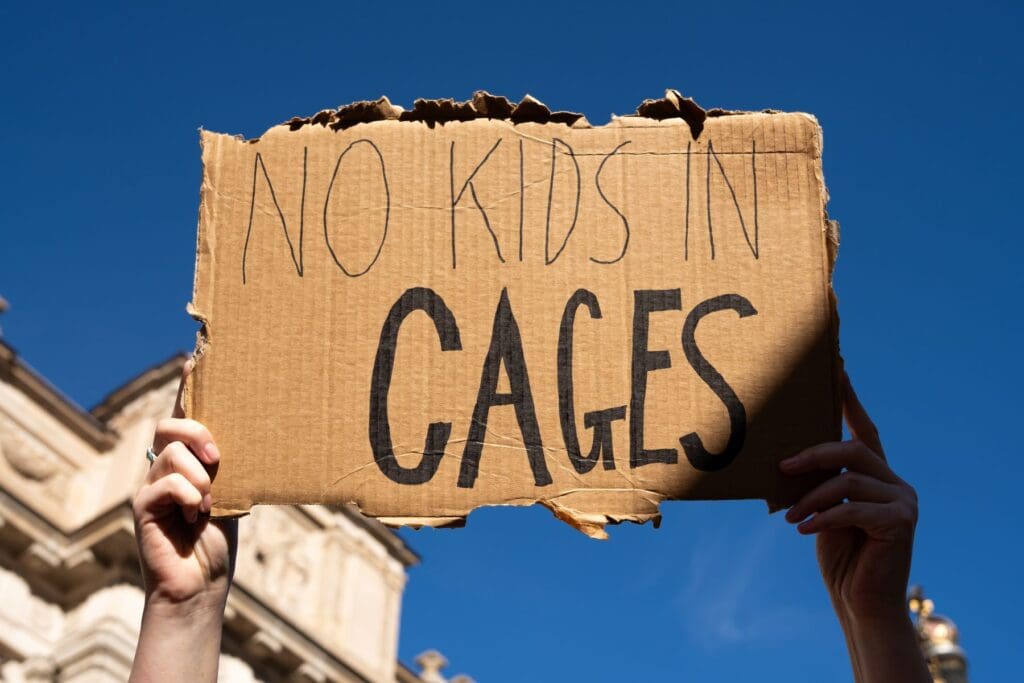High Court strikes down Tasmania’s excessive anti-protest laws
The High Court of Australia has ruled that key provisions of Tasmania’s excessive anti-protest legislation are invalid because they violate the implied freedom of political communication in the Australian Constitution.
The Executive Director of the Human Rights Law Centre, Hugh de Kretser, said the decision was a big win for democracy in Australia.
Today’s High Court ruling is a big win for democratic freedoms in Australia. Thanks for supporting our work. https://t.co/7QRcvxKJQE pic.twitter.com/nA0OWF866n
— HumanRightsLawCentre (@rightsagenda) October 18, 2017
“Free expression and the right to peaceful protest are essential to our democracy and must be protected. The High Court’s landmark decision protects these fundamental values.”
“These laws sought to prevent and punish protest that affects business. They were too broad, too harsh and too vague. They were thoroughly undemocratic and put corporate interests ahead of democratic interests,” said Mr de Kretser.
The Human Rights Law Centrewas granted permission by the High Court to intervene in the case to support the challenge by Dr Bob Brown and Jessica Hoyt.
The case centred around the arrest of Dr Brown on a public road while he was trying to film a video about a controversial logging project in Tasmania’s native Lapoinya forest. A second plaintiff, Jessica Hoyt, was separately arrested in the Lapoinya forest in similar circumstances.
“Today is a great day for the forests, wildlife and all of nature in Tasmania and around Australia. And a great day for the fundamental right of Australians to peaceful protest,” said Dr Brown.
Mr de Kretser said the Tasmanian laws are part of a broader undemocratic trend, with state governments across the country in recent years seeking to pass excessive laws that stifle peaceful protest.
“Governments shouldn’t be able to sell off our democratic rights in order to protect business interests. The High Court’s decision strikes down key parts of this excessive legislation that led to the arrests that sparked this case. The Tasmanian Government should now scrap the legislation entirely,” said Mr de Kretser.
The Court in its 183 page judgment ruled in favour of Dr Brown and Ms Hoyt by a six to one majority.
A big thanks to our incredible pro bono team of DLA Piper, Bret Walker SC, Jonathon Redwood and Prue Bindon.
For interviews or further information please call:
Hugh de Krester, Executive Director, Human Rights Law Centre, 0403 965 340
Media Enquiries
Chandi Bates
Media and Communications Manager

University of Melbourne urged to drop repressive anti-protest and surveillance policies
The University of Melbourne is being urged to abandon policy changes that restrict staff and students’ right to protest and permit the widespread surveillance of people using their wifi network.
Read more
Expanded protections for marginalised groups welcomed in Allan Government’s anti-vilification laws
The Human Rights Law Centre welcomes the additional protections for marginalised groups in anti-vilification laws passed today by the Allan Government. These laws expand protections from vilification to include people from LGBTIQA+ and disability communities, and provide communities with important civil law avenues to address vilification.
Read more
Aboriginal human rights experts take Australia’s racist youth justice policies to the UN
Aboriginal leaders are calling on the United Nations to take urgent action to address Australia’s discriminatory and punitive youth justice policies
Read more


